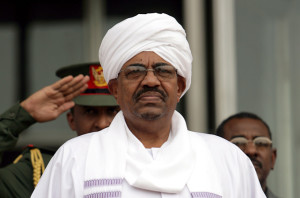By Dr Miša Zgonec-Rožej*
South Africa’s failure to arrest the Sudanese president is the latest incident in a troubled relationship between the court and African states.
Sudan President Omar Al-Bashir was allowed to leave South Africa on 15 June in defiance of a temporary order issued a day earlier by the High Court in Pretoria, which required South African authorities to prevent him from leaving the country until an application submitted by a human rights group was heard by the court. Just hours after Bashir’s departure from South Africa after attending the African Union (AU) summit in Johannesburg, the court ordered that President Al-Bashir be arrested and surrendered to the International Criminal Court (ICC).
As a state party to the ICC, South Africa thereby breached its obligation under the Rome Statute to execute the ICC arrest warrant issued against the president. This highlights an ongoing problem for the ICC: without states’ cooperation, and lacking its own enforcement mechanisms, the court is forced to leave cases suspended indefinitely.
Lack of immunity
President Bashir has been sought by the ICC for his alleged involvement in genocide, crimes against humanity and war crimes committed during the conflict in Darfur. Sudan is not a party to the Rome Statute which established the ICC, but the ICC has jurisdiction as a consequence of a 2005 referral to it by the UN Security Council of the situation in Darfur. The African Union, however, has continually opposed the prosecution by the ICC of heads of states during their term of office. The AU has requested the suspension of proceedings against President Bashir and called upon AU members not to arrest and surrender him.
Under the Rome Statute, however, state officials, including serving heads of state, do not enjoy immunity from prosecution. States parties, including those that are members of the AU, are therefore obliged to comply with ICC arrest warrants. In 2014, the AU adopted a protocol providing immunity from prosecution to any serving AU head of state and extending the jurisdiction of African Court of Justice and Human Rights to include criminal jurisdiction over genocide, crimes against humanity and war crimes. The protocol will enter into force once 15 AU members have ratified but so far only four states have signed it, and no state has ratified it.
African bias?
The AU has accused the ICC of bias against African states and their leaders. It is true that the Security Council’s referrals to the ICC do not reach beyond the African continent. The role played by politics in the Security Council’s decision-making is clearly shown by the Council’s stalemate with regard to the proposed referral of the situation in Syria to the ICC. However, most of the situations that have been referred to the ICC have been by African states themselves. The willingness of some African states to cooperate with the ICC shows that the attitude of AU members to the ICC is not uniform.
The debate within the AU appears to lose sight of two key facts. First, the ICC goes where the victims are; it has no interest in persecuting African – or any other continent’s – leaders as such. However it is often leaders who bear responsibility for mass crimes committed internally or in an armed conflict. Second, the campaign to provide immunity for heads of state is not in the interests of the victims, nor necessarily of the countries concerned, but merely serves the interests of the ruling elites to avoid prosecution.
Reliant on states
The ICC does not have its own law-enforcement authorities. When a state fails to cooperate with the ICC, the court may refer the matter to the Assembly of States Parties or the UN Security Council (if the matter was originally referred by the Security Council). A number of states parties have been found by the court to have breached their obligations of cooperation with the ICC; Sudan, Malawi, Chad, Kenya, Djibouti and Democratic Republic of Congo have all failed to cooperate with the ICC by deliberately refusing to arrest and surrender Bashir. But despite calls by the ICC the UN Security Council has yet to adopt sanctions against states that do not cooperate.
South Africa’s refusal to execute the ICC arrest warrant against Bashir is yet another reminder of the need to strengthen the ICC procedure relating to states’ non-cooperation. Under the current regime all that the Assembly of States Parties can do is to recommend resolution through diplomatic means. ICC members agreed at the Assembly of States Parties in 2014 to undertake and review the non-cooperation procedure, but it remains to be seen whether states are ready to entrust the ICC with more effective enforcement powers.
Following the collapse of the Uhuru Kenyatta case, due in part to Kenya’s non-cooperation with the ICC, and Libya’s refusal to comply with the ICC’s order to surrender Saif Gaddafi, South Africa’s failure to arrest President Bashir shows once again that states play a crucial role in ensuring the effectiveness of the ICC. Without support from states, the ICC is simply not able to carry out its mandate.
*This article was originally published on www.chathamhouse.org

